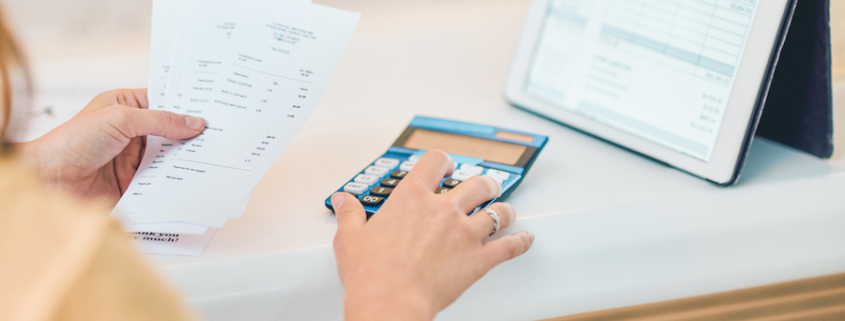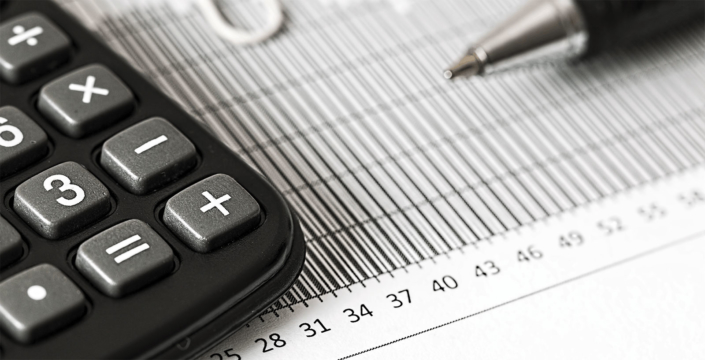Blog | All Posts | All Topics
How a Bookkeeping Service Can Help Your Retail Business
Bookkeeping for retail business involves keeping a record of all your daily financial transactions within an organised accounting system. Maintaining precise records of your expenses, sales, receivables, inventory, and payables ensures that you create accurate financial reports and assess your business performance. Detailed and authentic records are also handy in case of a tax audit.
Before you initiate the bookkeeping process, you must identify the best booking system for your business and decide whether to invest in in-house bookkeeping or outsource the services.
What Does a Store Bookkeeper Do?
A store bookkeeper records and maintains a business’s financial transactions, including sales revenue, expenses, invoices, payments, and purchases. Their responsibilities mainly involve using numbers, math skills, and accounting principles.
Typically, bookkeepers handle the initial steps of the accounting cycle, which include:
- Identifying transactions
- Recording transactions in a journal
- Posting to the general ledger
- Calculating the total balance for the accounts
- Looking for errors and adjusting worksheet
- Adjusting entries
Financial reporting requires maximum accuracy and one way of ensuring precision is by communicating with colleagues and clients. Bookkeepers collect purchase and sales documents from coworkers and handle other tasks that require them to engage with other parties.
Proper communication ensures correct documentation of all transactions and eliminates chances of omission. You can enhance your line of communication by investing in a reliable system of cash distribution, expense account reimbursement, and receipt submission.
Additionally, a bookkeeper liaises with the heads of departments to make enquiries on inventory needs. For instance, the bookkeeper can order if office supplies and products are less than needed.
Other primary responsibilities of a bookkeeper include;
- Processing payroll
- Performing banking activities
- Reconciling reports
- Producing monthly financial reports
- Handling accounts receivable
- Handling accounts payable
Some bookkeepers have expert knowledge on accounting and may take up advanced duties such as creating budgets and forecasts, tax filing, training staff on the use of software solutions, and end of year reporting, particularly for small businesses.
How Does Bookkeeping for Retail Business Work?
Retail business bookkeeping involves creating a framework, choosing between double- or single-entry accounting methods, and keeping records.
For single entry accounting, bookkeepers make entries once, either as an income or expense. On the other hand, the double-entry transaction involves recording transactions twice as a credit or debit. Your choice of entry system impacts the accuracy of your transaction records and the efficiency level of your bookkeeping process. Typically bookkeeping for a retail business entails keeping tabs on expenses, sales, inventory, receivables, and payables.
Inventory Accounting
Bookkeepers use reliable systems to track and record inventory movement daily into and out of the retail business. As a result, you will have a record of the cost and quantities of all supplies you receive, along with the selling price of every product sold. In addition, bookkeepers adjust records regularly to account for damaged, stolen, or spoiled goods – this ensures that the documents show accurate numbers of the available inventory.
Since your inventory is the most significant asset of your business and probably your biggest investment, it’s only reasonable to ensure that you keep accurate records that you can access when necessary.
Income
Bookkeepers keep records of all income that flows into the business and compare the figures with bank statements to identify any variation. While you may be generating income via other sources like after-sale service fees or consignment commissions, your sales revenue is your primary driver of income.
Also, bookkeepers regularly perform audits of the point of sale system records to ensure accuracy. Simply put, bookkeepers keep receipts of all revenue earned and transfer the sum into the business accounting system.
Expenses
Bookkeeping involves tracking business expenses and comparing the figures with the bank records as often as possible. A good bookkeeping and accounting system automatically records recurring, variable, and one-time capital investment expenses. All these expenses are recorded in separate accounts to make calculating profits and preparing financial reports easier. Typical expenses include rent and lease, labour expenses, taxes, fees, and purchases.
Payable and Receivable
Bookkeepers handle accounts receivable and account payable. Your accounting system should remind you to clear your debts on time and manage debt collection from credit customers.
Managing payables can raise your credit rating while keeping track of your receivables ensures that you have enough working capital.
Owners’ Equity and Retained Earnings
Bookkeepers record all owners’ resources added to the business in a different equity account. Although this information might not be relevant in the short term, it will be beneficial in the future when a partner quits.
Additionally, bookkeepers document the amount saved, the amount retrieved, and all interest earned within a retained earnings account.
What Types of Records Should a Retailer Keep?
To properly determine your retail store business performance and prepare for tax time, you need to have accurate records of all your sources of income, expenses, purchases, payables, and receivables. Some of the critical documents that you need to keep include:
Journal of Non-Cash Transactions Affecting Accounts Payable
This journal lists the amount of money you owe another business or individuals after purchasing inventory on short-term credit. It includes the actual amount owed, the creditor, payment date, and the date when you cleared the debt. You can’t be charged twice for one service or product with this record.
A Journal of Cash Transactions
A cash transactions journal contains records of all payments you make in the form of cash. Some cash transactions include;
- Cash refunds after the return of goods sold
- Payment to creditors
- Cash payment for rent, insurance, salaries, and other expenses
- Cash withdrawal
Sales Slips, Invoices, Receipts, Cash Register Receipts, and Other Sales Documents
Sales documents indicate the quantities of products you sell and the revenue your retail store makes daily, weekly, and monthly. In addition, they include the type of goods or services sold and the cost of each sale. Cash register receipts, for instance, show the different forms of payments used by customers, such as credit cards, cash, or checks. On the other hand, an invoice shows the type and cost of the product you have provided to your customer. It serves as a request for payment.
Conclusion
Bookkeeping for retail business is key to business success and growth. Without proper financial reporting, chances of making business decisions based on inaccurate financial statements are high. And most importantly, you are legally required to use correct records when filing taxes. It’s never too late to get started. Learn about Visory’s Bookkeeping Services.







